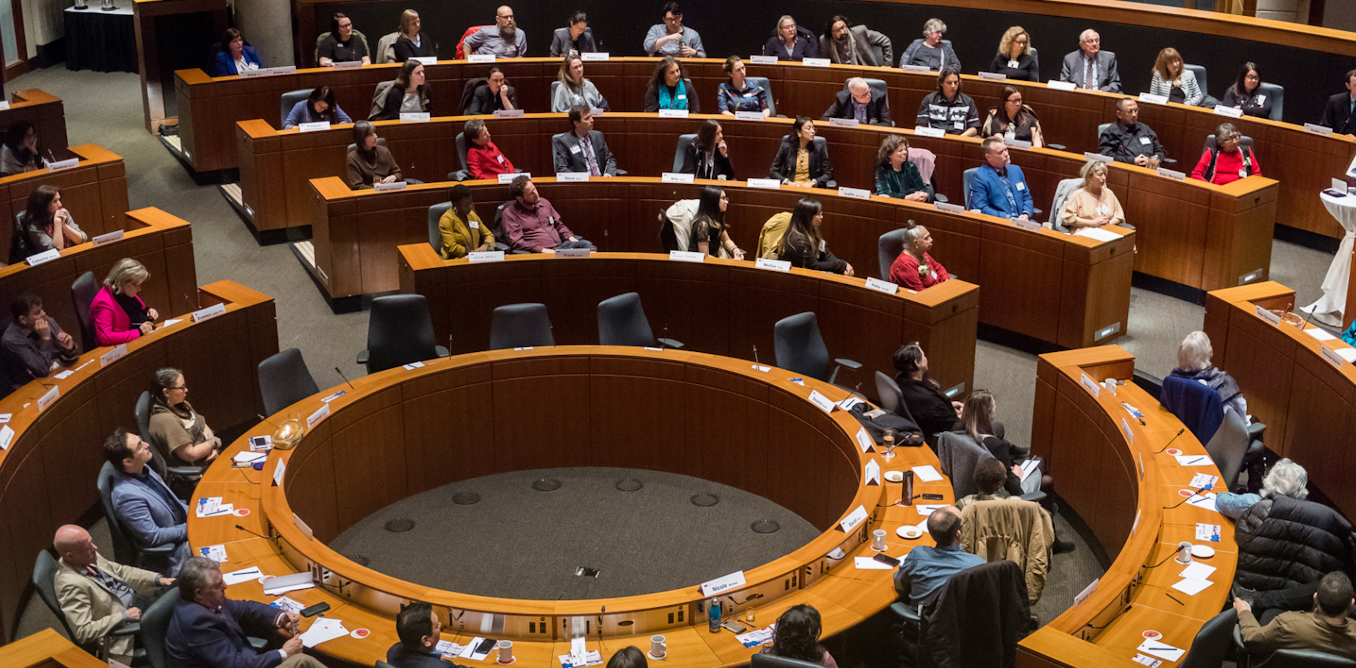What if citizens were called to policymaking duty the way they are called to jury duty?
All over the world, ordinary people are finding out what that’s like when they’re selected by civic lottery to participate in a citizens’ assembly, a democracy innovation that may just be the antidote to the polarization of the world we need.
[…]
According to the OECD database, environment and other long-term policy issues are the most popular topics addressed by citizens’ assemblies, and local governments are the most frequent users of these methods.
[…]
In citizens’ assemblies, there are teenagers and octogenarians, business people and activists, people of all genders, races and abilities, individuals who have been regulars at city council and those who have never engaged in local democracy before. Inevitably there is a wide range of political leanings, lots of passion and some trepidation.
[…]
The challenges range from giving everyone a base of technical knowledge to effectively participate in discussions — a component often missing in public consultations — to ensuring complex accessibility needs are met, something required to address the gap in effective involvement of people with disabilities in decision-making.
[…]
The OECD estimates that roughly half of the recommendations of deliberative processes are implemented. We’ve also found that the side benefits of citizens’ assemblies, such as increased community cohesion and a sense of hope, are substantial.
[…]
Building trust with government may be another important outcome. Research shows trust in government is significantly higher among Canadians who feel they have a say in what the government does (79 per cent compared to 21 per cent who do not).
[…]



So they have councils that influence politics. Within a republic. A Soviet republic!/s